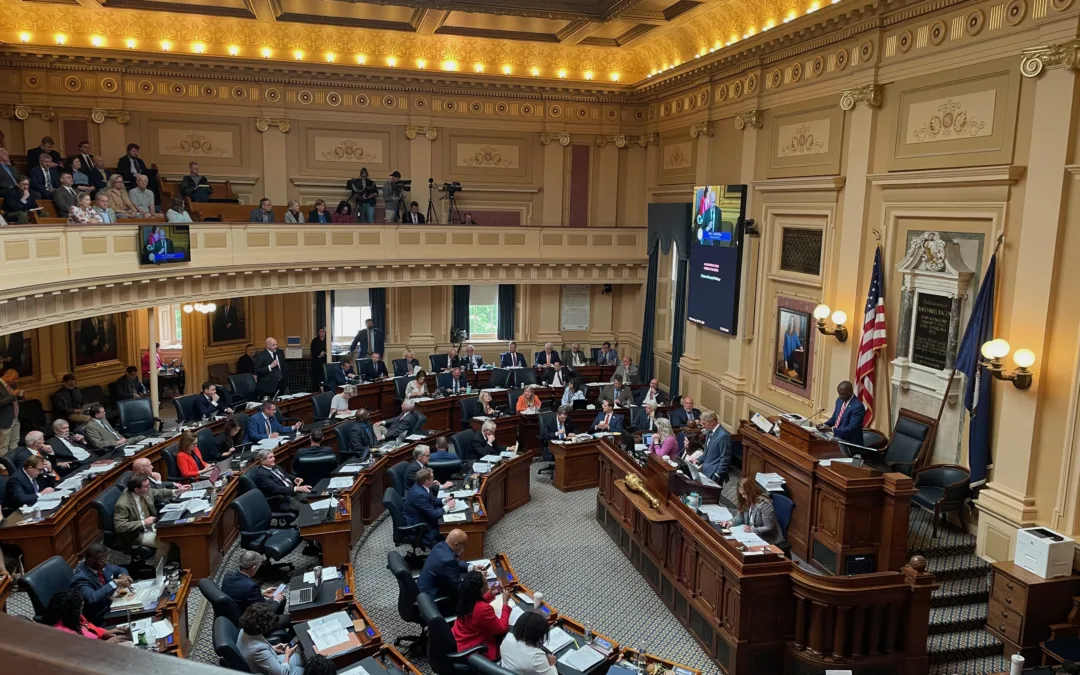Richmond-area schools suspend black students four times more often than white students, a gap that exceeds the national average, according to a new study from the Metropolitan Educational Research Consortium, the local research arm of Virginia Commonwealth University’s School of Education.
The study, which was first reported on by the Richmond Times-Dispatch, found that 20% of black students in the region received an out-of-school suspension during the 2015-2016 school year, compared to only 5% of white students. Nationally, the rates are closer to 15% of black students and 5% of white students, according to federal data.
The Policy and Planning Council of the Metropolitan Educational Research Consortium (MERC) commissioned the study in 2015 after years of “deep and persistent discipline disparities facing area schools and students” in the Richmond area.
MERC, which is comprised of local superintendents, research directors, and other division leaders, tasked researchers with investigating the disparity in seven school divisions: Chesterfield, Colonial Heights, Goochland, Hanover, Henrico, Powhatan, and Richmond.
The goal of the study was to “explore factors contributing to racially disparate outcomes in exclusionary discipline for students in MERC division schools.”
Researchers analyzed data from the Virginia Department of Education and the American Communities Survey. They also surveyed school leaders across all seven divisions and conducted observations, interviews and focus groups with educators and students at three schools in the region.
On top of the racial disparity, the study found that suspension rates increased with age. Black Richmond-area students were particularly impacted by this surge, though, as thee report found they are more than three times as likely to be suspended in secondary school (29%) then in elementary school (9%).
Black secondary school students were also three times more likely to be suspended than white secondary students in the Richmond region.
The severe racial disparity in school discipline exists across Virginia. In 2016, black students in Virginia made up 23% of the student body but accounted for between 50 and 58% of short- and long-term suspensions and expulsions.
Black and Latinx students are also more likely to be suspended for subjective behaviors like disrespect or loitering while white students are suspended for more objectively observable behaviors such as smoking.
The disparity in subjective infractions is particularly stark in the Richmond area. In the 2015-2016 academic year, black students made up only 36% of region-wide enrollment, but received 75% of all suspensions for subjective infractions like disrespect or defiance.
The study also found that black students in regions with high concentrations of poverty were disproportionately suspended. In schools where 0-25% of students were identified as economically disadvantaged, roughly 9% of black students received out-of-school suspensions. But in the highest poverty schools, where 75-100% of students were identified as economically disadvantaged, 21% of Black students were punished with out-of-school suspensions.
Racial segregation also increased the likelihood of suspension; researchers determined that for every 10% increase in Black student enrollment at a school, Black students received about 2% more out-of-school suspensions.
Researchers also found that implicit bias and lack of clarity and consistency in the implementation of discipline policies, as well as a lack of explicit focus on race and culture, contributed to the racial inequity in discipline.
While the study had several findings, it also paired them with suggestions to address the “racial disproportionality” of discipline practices in Richmond-area schools, including recommendations that schools revise their codes of conduct and create a different set of consequences for major and minor infractions.
Researchers also suggested limiting or removing the option to suspend students for subjective infractions, while also advising schools to provide additional resources and support for school leaders and teachers, such as social services and counselors.
The researchers further recommended that schools seek feedback from teachers and students each year, provide discipline-related professional development, provide implicit bias trainings and hire more people of color. “Schools should consider hiring more faculty and leaders of color. It is well documented in the literature that hiring faculty that are demographically representative of the student body can lead to more favorable discipline outcomes for students of color,” the researchers wrote.
The study concluded that “the black-white discipline gap remains steady and gaping across the Richmond region,” and that stakeholders — including federal and state policymakers, local school board members, school division leaders, administrators, teachers and other educators and students — must act.
“Stakeholders must urgently press for robust, effective and race conscious policy changes and discipline interventions, along with capacity-building for implementation and continual monitoring.”
Politics

Youngkin, Democrats to start over on budget talks
The Republican governor stood with Democratic leaders in the General Assembly on Wednesday in a bid to ease tensions over their budget debate....

VIDEO: Domestic abuse victims speak out against the gun law bills Gov. Glenn Youngkin vetoed
Senate Bill 47 and House Bill 46 aim to close the loophole that allows offenders to transfer their firearms to someone else instead of relinquishing...
Local News

Virginia verses: Celebrating 5 poetic icons for National Poetry Month
There’s no shortage of great writers when it comes to our commonwealth. From the haunting verses of Edgar Allan Poe, who found solace in Richmond's...

Join the fun: Recapping Family Literacy Night’s storybook adventures
When’s the last time you read a book aloud with a loved one? If it’s difficult to answer that question, then maybe it’s time to dust off that TBR...




